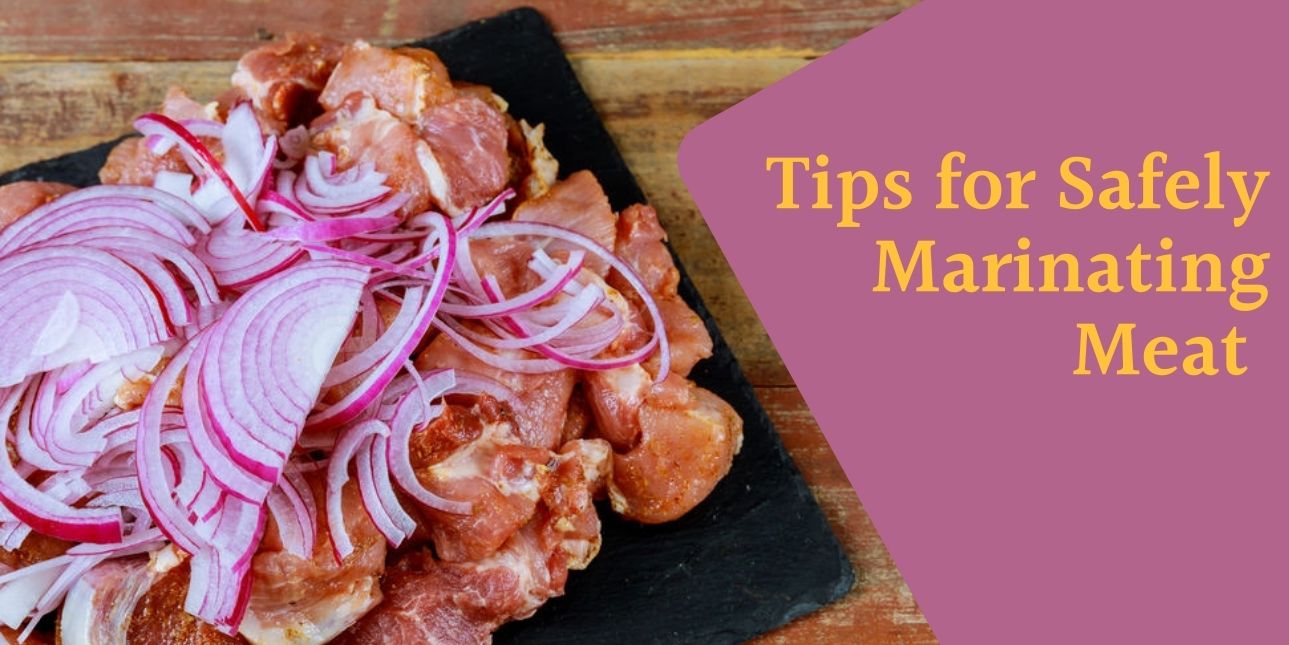
Marinating meat requires caution and skill in order to produce succulent and safe meat that anyone would want to eat. Any good chef knows there are a lot of steps involved when marinating meat, but many people are unsure how long they should store said meat in the fridge.
There are several things to consider before you begin marinating your meat, because one wrong move could affect the final product. But fear not, because we have all the tips and information you need to prep a beautiful piece of meat.
How Long can Marinated Meat Keep in the Fridge?
According to the United States Department of Agriculture, marinating meat for too long (longer than 3-5 days) will eventually cause the meat’s fiber to break down, thus diminishing the natural taste and quality. So, in order to avoid an unpleasant meal, you must cook and consume meat within 5 days of marinating the meat.
How do You Store Marinated Meat?
Necessary precautions must be taken when storing marinated meat for long periods of time to ensure proper food safety.
Without adhering to, proper safety practices, you run the risk of contaminating your meat or ending up with meat that is inedible.
There are many ways to store your marinated meat and maintain its safety as well as its quality.
Store Marinated Meat in the Fridge
The fridge is the best place to store marinated meat if it is intended to be consumed within 5 days.
To store your marinated meat properly in the fridge, keep the meat in an airtight plastic container or keep it in a snap lock bag.
According to Michigan State University, marinating meat in a metal bowl before storing it in the walk-in cooler could affect the meat’s quality due to the metal’s reaction with any acidic contents present in the marinade.
To extend the length of time the meat will keep, place the container in the coldest part of your fridge (optimally at 40 °F or 4.4 °C) and leave the container closed to avoid contamination.

Store Marinated Meat in the Freezer
As a meat lover, surely you might ask, “Can you freeze marinated meat?” The answer is, “Yes, you can!”
Storing marinated meat in the freezer is similar to keeping meat without marinade in the freezer. However, there are a few things you must consider.
The U.S Department of Agriculture recommends freezing varieties of meat such as kidneys, tripe, and sweetbreads at -0.04°F — and they will keep indefinitely.
But freezing marinated meat is a different ball game. You must avoid bacterial contamination and freezer burn at all costs.
To do this, drain the excess marinade off the meat, wrap the meat in cling film or place it in a plastic bag, then cover the package with aluminum foil or a freezer bag to prevent freezer burn. This method is intended for fresh meat that was not previously thawed.

Tips for Marinating Meat Properly
A tasty marinade adds an extra oomph to your meat dishes. But this depends significantly on the kind of ingredients you use and a few other things.
Certain factors like too much salt or the wrong type of oil are a recipe for a cooking disaster.
But before you throw away thoughts of a tasty, marinated steak, here are some tips to help you marinate your meat the right way and enjoy a tasty meal.
Use a Tenderizer When Marinating
Tenderizers are acidic. The acidity softens up tough meat fibers that make it difficult to chew or swallow. With the right tenderizer you too can enjoy a steak that melts in your mouth.
When marinating, use acidic ingredients such as vinegar or citrus fruits like lime, lemon, or orange. Along with giving your meat a tangy taste, these tenderizers give it a tender texture.
You can find tenderizers at your local grocery store, or you may opt for ingredients you may already have in your pantry like wine, pineapple juice, or honey.
Massage and Turn the Meat to Evenly Distribute the Flavors
Massage your meat once you add in the spices. Be sure to wear cooking gloves to avoid contamination ensuring you rub the meat all over to get the flavors evenly distributed.
Also, avoid using too much salt when marinating your meat. Of course, you want your meat to have zing, but it is best you go easy on the salt as it can be overpowering and leave an unpleasant taste in your mouth.
Not only might you end up with salty meat, but salt draws moisture from meat, making it less juicy. Instead, opt for using a little salt immediately after cooking.
Finally, use herbs and spices in your marinade. You should combine all these ingredients in small amounts so as not to overpower the marinade.
Include high smoke point oils in the marinade
High smoke point oils are thoroughly refined oils. The more refined the oil is, the higher its smoke point.
The smoke point of a particular oil is the degree of heat at which the oil begins to burn.
Depending on what type of cooking you intend to do with your marinated meat, you are better off with an oil that’s best suited for such a purpose.
For example, extra virgin oil has a smoke point of 410°F and suits medium heat cooking. On the other hand, light olive oil, with a smoke point of 486°F, suits cooking methods like grilling, smoking, or roasting.
Many marinades have added oil to give the meat additional moisture. Marinades for beef steaks rely less on oily marinades than leaner meat types, such as chicken or fish.
Do not Marinate Meat on Steel Plates
Never marinate your meat in a steel plate because marinades contain tenderizers, which, as previously mentioned, are acidic. These acids react with the metal and cause a negative reaction which affects the quality of the meat.
Do not Marinate Meat at Room Temperature
It is easy for bacteria to grow in humid places. Never leave you meat on the kitchen counter or anywhere else at room temperature unless you are about to cook it.
Room temperature makes it easier for bacteria to grow and multiply on raw meat. Be diligent and safe when preparing meat to avoid food poisoning or an unpleasant meal.
Wrapping Up
By now you should have the knowledge you need to make sure you have a great and safe piece of marinated meat to eat!
To recap, marinated meat keeps in the fridge for three to five days. If you let meat continue to marinate after five days, there is bound to be a change in taste and quality. So, you should avoid over-marinating your meat and make sure you marinate it safely by following best food safety practices.
With proper care and the use of best safety practices, you too can enjoy the taste of a juicy marinated steak with your next meal.







